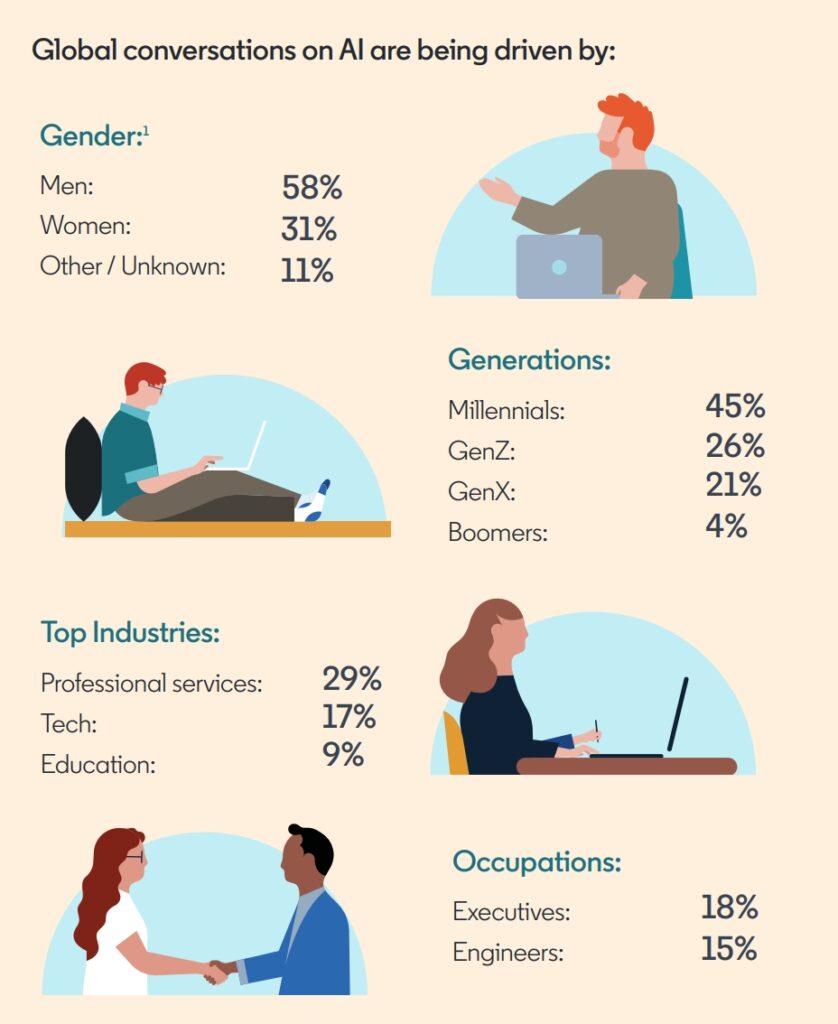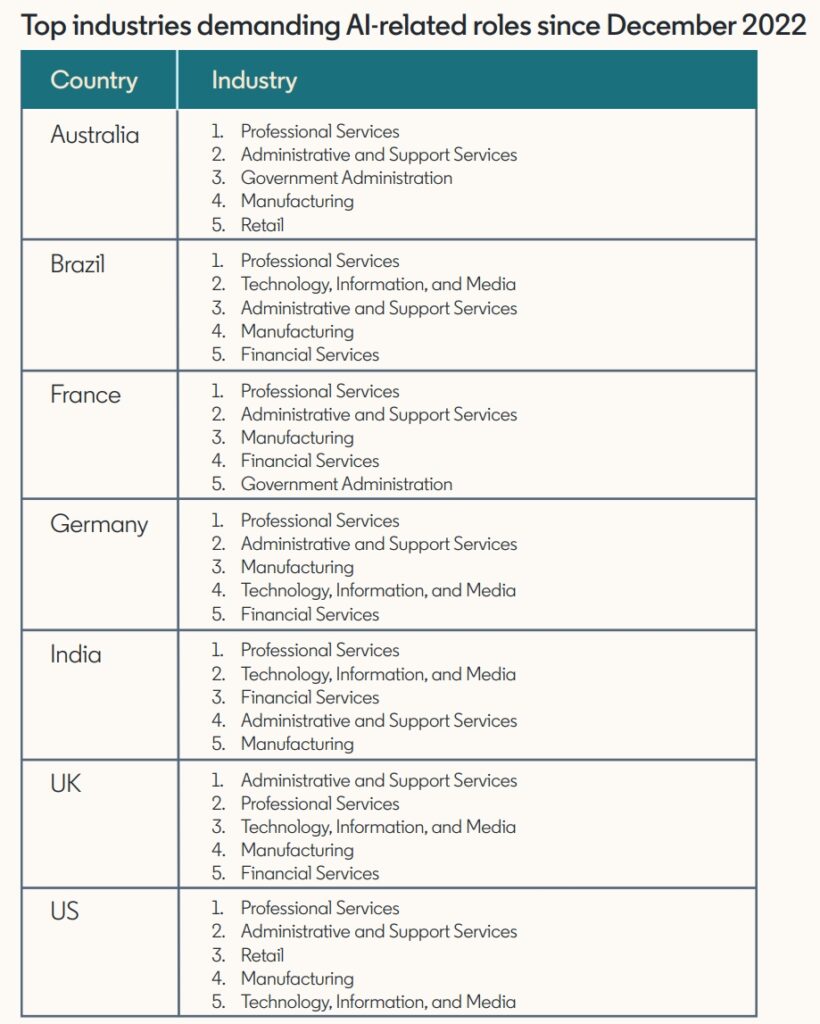The Rise of AI in Numbers
One of the most striking trends is the immense increase in AI-related conversations and interests. LinkedIn recorded a 70% increase in AI discussions, with terms like “ChatGPT” and “Generative AI” gaining significant popularity.
The workforce is at a turning point: Artificial Intelligence (AI) and specifically Generative AI (GAI) are shaping new work patterns and requirements. The “Future of Work Report: AI at Work” from November 2023 offers deep insights into this change, based on extensive data and analyses from the LinkedIn platform.

In the discussions themselves, differences in preferences across age groups are evident. Leading the discussions are industries such as Services, Technology, and Education. Since November 2022, job offers mentioning GPT or ChatGPT have increased 21-fold.
The Transformation Through AI
AI competencies are no longer just relevant for technical professions. Industries such as Professional Services, Financial Services, and Manufacturing show a high demand for AI competencies. Interestingly, AI jobs do not exclusively require AI skills; a mix of technical and interpersonal skills is becoming increasingly important.

The report indicates that higher educational degrees lead to a greater need to adapt to AI tools. Among generations, Gen Z is most influenced by AI, but this is balanced by their tech-savviness. Regarding gender, women are slightly overrepresented in AI-impacted professions, which could open up new career opportunities for them.
AI fundamentally changes how work is defined and performed. Jobs are increasingly defined by a collection of skills and tasks rather than by traditional titles. The skill sets required for our jobs might change by up to 65% by 2030. Balancing AI skills with interpersonal skills is crucial to succeed in this new era.
AI as a Catalyst for Professional Development
AI and GAI are not just technological novelties but essential drivers for productivity enhancements and career progression. Continuous adaptation and education are central to success in the AI-shaped workforce. This shift presents both opportunities and challenges and requires a new mindset regarding education, career development, and how we think about work.
For more information and perspectives, take a look at the “Future of Work Report” itself, which can be downloaded here: https://economicgraph.linkedin.com/content/dam/me/economicgraph/en-us/PDF/future-of-work-report-ai-november-2023.pdf.
